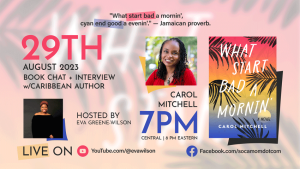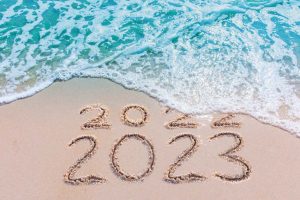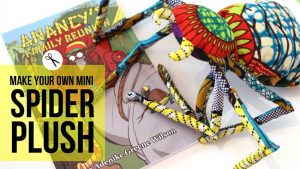Everyone deserves to know who they are.

For many of us, knowing where we come from is a given. For me, it was never an issue of not knowing. My parents and all my family had accents. Visiting family wasn’t just a matter of going up the street – we would get our passports and leave the US. Tracing our ancestry was just a conversation with an aunt, grandmother, or cousin. For people whose family left the Caribbean hundreds of years ago, it isn’t that easy.
I had heard rumors that my grandfather’s family came to Tobago via Barbados. It wasn’t until I was fresh out of college on a ski trip that I saw someone who was a younger version of my grandfather – I was compelled to ask him his name. True story – he had the same first and last name as my father… and was from Barbados. I never really considered that Trinidad wasn’t the starting point as far as my family’s history in the Caribbean.
Truth is, a lot of families hopped from island to island in search of work and stability. Panama, for example, has many families originally from Trinidad and Jamaica, but who have lived there over 100 years – and now speak Spanish.
Caribbean people have a very unique history that includes Portuguese slave masters, east Indian and Chinese indentured servants, indigenous people, African slaves, and more. Caribbean people came to America as British immigrants via Ellis Island. Many Caribbean people traveled between the Caribbean and Europe frequently, and settled briefly before moving to the United States.

The third edition of his book Tracing Your Caribbean Ancestors: A National Archives Guide will be available in September 2012 it is available for pre-order on Amazon
. For close to 10 years he has lead discussions and workshops for family history groups and libraries in London, the Midlands and the South West to introduce them to resources in the National Archives, Caribbean genealogy, and genealogy in general.
If you are a homeschooling Caribbean mom, I encourage you to add Caribbean history to your child’s curriculum this year, and do the research on your history as a family. The only way that the culture will survive outside of the Caribbean is if we keep our children aware of it if keeping them immersed in it seems daunting. My Caribbean family is spread all over the world. With first cousins in Australia, England, Trinidad and Tobago – and other family members in Venezuela and St. Vincent – keeping track of everyone is hard, but I am encouraged.
Sometimes my mom and I get into conversations about family that ends with, “Everybody mix up mix up, but we all family.” It’s true, I look at my kids, and I think of them as little sweet cakes made up of lots of little secret ingredients that no one knows all of. A younger first cousin of mine was raised between Tobago and England, and I can’t tell you how wonderful it felt to see a a picture of him on his Facebook wall with him in a shirt that said, “Caribbean Recipe.” I couldn’t have said it better.
Where has your research into your heritage led you? What interesting things have you discovered? Are you unsure of where to start looking? Do you suspect that you have Caribbean ancestry, but are unsure?



